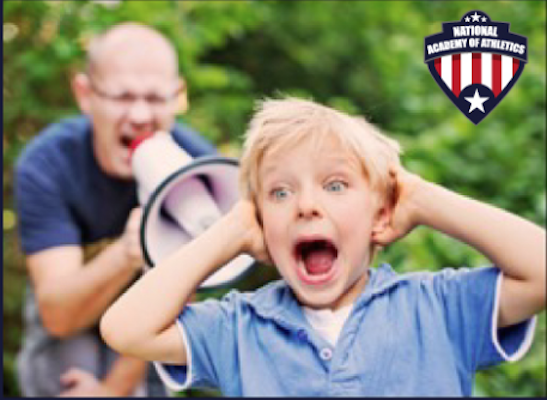The quality of your child’s ability is not a direct reflection of the quality of your parenting skills.
First, let me say, I am one of you. A parent of athletes. I have two kids, a son now 16 years of age and a daughter, 14. They both have played at least two or three sports throughout the seasons, every year since they were five or six years old.
As a coach, I am now entering my 33rd year working in youth sports and there are some life lessons worth sharing that will hopefully help keep perspective on the upcoming season– for you and your child.
1. Although in our society “winning” is perceived to be a direct reflection of effort when a child is participating in a team sport, I have found that it is more important that we focus on a young child’s “individual effort” rather than team results.
Most team sports rely on other players to perform their skills—passing a ball, making a basket or throwing someone out at first base.
This means to me, that if we measure our success on wins and losses throughout the season, it is very likely that your child will not feel that they have been successful even if they personally learned new skills, experienced competition, made new friends and had fun in the process.
2. The division or level in which your child plays, or their individual athletic skills and prowess, is not a direct reflection of how good you are as a parent.
Often times we feel that we are judged based on whether our kid is a good athlete or not, although tough at times, we should remember that most of this is out of our control.
Be careful of living vicariously through your child!
And try not to put too much pressure on them to be successful.
In my experience, it is more important that we create an environment where kids develop confidence and interest in playing the sport rather than focusing on wins and losses.
3. There are many factors that go into what level your child is placed at including maturity, experience, nature and interest.
At the end of the season, it’s more important that you help your children develop a passion so that they will want to continue to play a sport rather than losing the love of the game.
Each child progresses at their own individual pace.
Beware the Pressure Pitfall
4. There are things we all can do to help our kids progress in youth sports, but adding pressure is not one of them.
If your child has an interest in improving in skills, or confidence or wants to become a better player, I suggest you look into the opportunity of skills clinics, camps and even some one-on-one training.
5. The is no direct correlation with a child playing at a higher level in their younger years and their potential growth to play at a top level later in high school or college.
In fact, it has been proven that a child who plays on teams with their friends, will have the desire to continue to play that sport longer and be more interested in improving their skills.
Parents of Athletes…
At the end of the day, one of the life lessons that sports teach us is that winning or losing the game is not a direct reflection of your child’s self-worth. Nor ours as parents!
If we parents are not careful to allow them to enjoy the game for what it is – PLAY TIME, then we risk taking the FUN out of it and turning it into WORK.
Focus on the Joy of the Game
If your desire is for your child to want to continue to play sports after the season ends, I suggest you focus your energy on the joy of the game and your child’s own efforts, rather than focusing on wins and losses.
Help them to enjoy the process by focusing on their “great pass” and “great sportsmanship” and “being a great teammate.”
Let them enjoy the ride.
I hope you have an amazing season.
Coach Locks
Mason & Mia’s Dad
Founder and CEO of National Academy of Athletics

